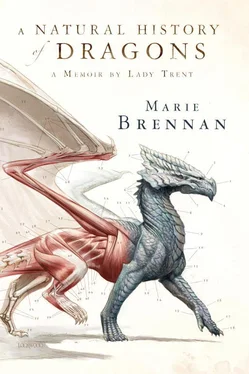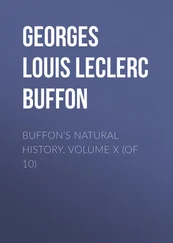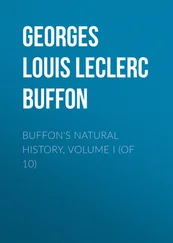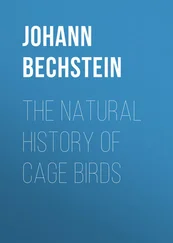For this to be properly mysterious, I should tell you about a secret panel hidden in the wall, or a trapdoor concealed beneath a rug, discovered only after an arduous search. But the truth is that I found the box shoved under a bench, and it took me no more than two minutes.
Bottles of sulfuric acid, labeled in Chiavoran. Several of them empty, and surrounded by charred straw where dribbles had tracked down the sides.
The noise was faint—no more than a tap of foot upon floor. My nerves were so tightly wound, though, that I shot upright… and found Astimir standing in the door to the inner room.
It is hard to say who was more horrified, him or me.
He certainly broke the paralysis first. Astimir flung himself at the outer door before I could even think to shout, racing past a startled Dagmira and vaulting the low fence in one long-legged hurdle, scattering chickens everywhere. “Catch him!” I bellowed, but it was too late; by the time I reached the door myself, he was off down the slope, drawing plenty of perplexed stares, but no attempts to halt his flight.
Of course not. Why should the villagers stop him? They had no idea he was the man behind the so-called haunting.
“ Damn it!” I kicked the doorpost, which at least had the salutary effect of hurting badly enough to bring me to my senses. From within the house, a querulous voice arose; Dagmira shoved past me to reassure Astimir’s mother with some kind of empty lie.
Astimir, all along. I should have seen it. He’d guided Mr. Wilker to find Lord Hilford; that must have given him opportunity to plant signs of “Zhagrit Mat.” No wonder Jacob and I had enjoyed a few days of peace while he was gone. Come to that, Astimir had “found” the first print, behind our house; he’d even been the one to cry out the monster’s name, setting everyone’s thoughts in the proper direction.
But he’d also taken Lord Hilford and me to the ruins in the first place. And that did not fit with our smuggler theory at all.
People were beginning to look toward Astimir’s house. I could not blame them; we had made some amount of noise. Or rather, I had. And it was far too late to duck back inside and hope no one had seen me.
I marshaled my Vystrani vocabulary (woefully inadequate though it still was), preparing a speech to explain matters to everyone. Fortunately, before I opened my mouth, I thought the better of it. Ducking my head back inside, I said, “Dagmira? I’m afraid they’ll think I’ve—” Why did travellers’ phrasebooks never include useful words like “framed”? “Made it look like Astimir did this.” (One would think my weeks in Drustanev would have inured me to my own awkward phrasings, but no; I winced at the clumsy circumlocution.) “It might be better if you explained matters.”
After a moment—a tense moment; in which I could hear the suspicious whispers growing behind me, and the skin between my shoulder blades itched as if expecting something to hit it—Dagmira appeared in the inner doorway. She gave me a sour look, which I translated as meaning that she knew I was foisting an unwelcome duty off on her, but could not argue with my logic. I pointed at the box of acid bottles, trying to be helpful. Muttering curses under her breath, she picked it up and went outside.
She spoke far too rapidly for me to follow, of course. I concentrated more on the replies from the gathered crowd; they were the important part, after all. People did not seem convinced. I resisted the urge to prompt Dagmira; she could figure out for herself, and tell them, that the test would come tonight. If it passed peacefully, then it would prove our point—or at least start to.
They wanted more than that, though. The mutters were still ugly. I bit my lip, thinking of what Mr. Wilker would say… then stepped up to Dagmira’s side.
In my best, most careful Vystrani, I said, “If Dagmira is wrong—if the village is troubled again—then we will leave. I give you my word.”
It was, I thought, a reasonable gamble. I did not think Astimir would return; he had seen me with the bottles, and would know I had exposed him for a fraud. Not to mention that without his acid, he would be hard-pressed to burn any more mysterious prints into the ground. But it was nevertheless a gamble, and I held my breath after I finished speaking.
The mutters sounded more promising, at least. I caught Mazhustin’s name once or twice, and Menkem’s. “Lord Hilford would be more than glad to talk to them,” I offered. Inwardly I began formulating plans for how to ensure that I talked to Lord Hilford first—then discarded them. It might be better if the gentlemen were not forewarned. Their surprise at hearing Astimir accused would help allay suspicions that the Scirling outsiders had colluded to frame a Drustanev lad.
“Come on,” Dagmira said under her breath, shoving at me with the box of acid. “Let them think it over— without you.”
I could only trust her judgment of her neighbors. Belatedly, I ducked inside to retrieve my art supplies, and then we made our way toward the gate—villagers parting around us like a reluctant sea—and back to our house.
In which many answers are found, not all of them pleasant, and some carrying an unfortunate price
The consequences of my bargain — An invitation from the boyar
In most cases I believe the phrase “tearing his hair out” is meant metaphorically, but I’m fairly certain I saw a few strands caught between Mr. Wilker’s fingers when he took them away from his head.
“Are you mad ?” he demanded. I took the question as rhetorical, but he answered himself. “Of course you are. That much has been obvious since before we left Scirland. I knew it then; no sane woman would demand to be involved with this. But since you’ve gotten here—!”
“Once there’s been a quiet night or two, people will begin to accept it,” Jacob said. “Isabella is right; Astimir will certainly not come back. Not tonight.”
Mr. Wilker made an inarticulate noise of frustration. “He doesn’t have to. The villagers don’t want us here, and never have; now they know that all they must do to be rid of us is cause trouble tonight.”
Pleasure over my cleverness had been glowing warmly inside me; his words were like a bucket of cold water dashed over that flame. I had thought about Astimir. I had not thought about everyone else.
“Then we’ll just have to keep watch,” I said, trying to sound confident.
“We?” Mr. Wilker’s eyes were bloodshot. He had not gotten any rest the night before, I remembered; that might have some bearing on his volatility now.
I lifted my chin. “Yes, we. I am not too delicate to go a night without sleep. I will stand watch alone or with someone else; Dagmira might join me. Or Iljish. There are some people here sympathetic to us.”
From Jacob I heard a grim murmur of “Not many,” but I paid it no heed. “Science will triumph, Mr. Wilker. I will not be driven out of Drustanev by peasant superstition.”
His murmur was rather more audible than Jacob’s. “No, by peasant pitchforks and torches.” But apparently he considered the argument at an end, for he stormed out of the workroom. I wondered if I had won or lost.
Jacob sighed and dropped into a chair. After a moment, he asked, “ How many bottles did you say he had?”
“Half a dozen.”
My husband shook his head. “Where in heaven did he get them?”
The bottles in question were with Lord Hilford and the mayor, but I remembered them well enough. “The writing on the labels was Chiavoran. Jacob, I’m wondering if the plan to drive us away was formed even before we came here.”
Читать дальше












